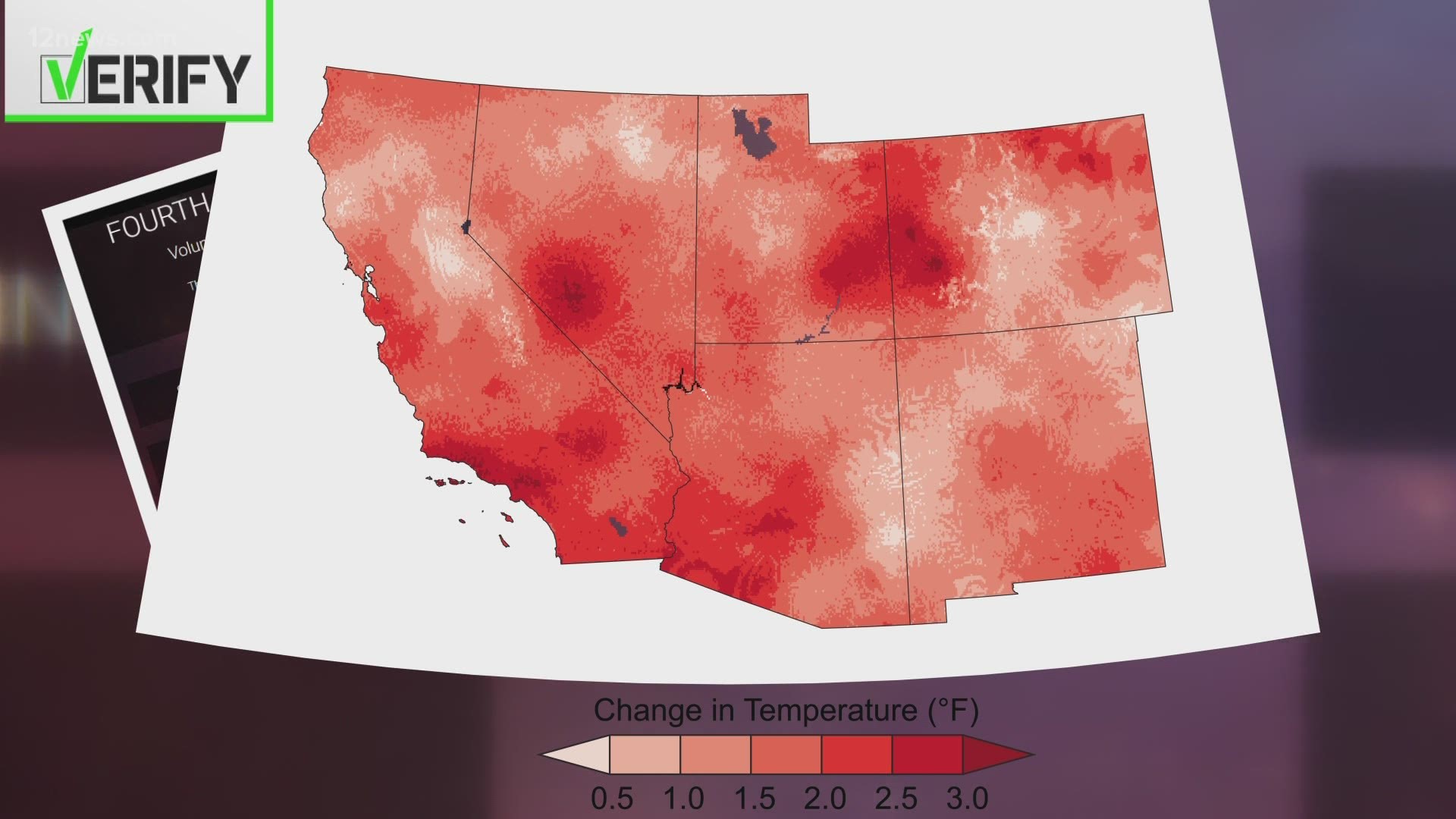PHOENIX — Phoenix has set a record in 2020 with 26 days of temperatures never reaching below 90 degrees. 2020 has shaped up to be the hottest year on record for Phoenix.
“What we’re seeing is an increase of records everywhere,” Climate Scientist Gavin Schmidt, Head of NASA’s Goddard Institute for Space Studies.
Schmidt says worldwide, over the last decade, warm weather records set versus cold weather records set amount to about a four to one ratio.
“We’re seeing (heat) records broken maybe not every year, maybe not every month or every place, but steadily and slowly they are happening more and more often,” Schmidt said.
The most recent National Climate Assessment shows parts of the southwest have seen the average temperature go up anywhere from .5 to 3 degrees compared to the first half of the 20th century.
Some question whether urban sprawl and “the heat island effect” creates the illusion of a warming planet.
“This (urban heat island effect) is a potential problem people have talked about for decades and the way we’ve dealt with it is multi-fold,” Schmidt said. “We have lots of data from rural areas where there isn’t any problem with urban contamination.”
Ocean data and satellite readings also confirm warming trends over the last decade have nothing to do with the urban heat island effect, Schmidt said.
According to the Intergovernmental Panel on Climate Change, the southwest will continue warming because of greenhouse gases.
“The current pace of human-caused carbon emissions is increasingly likely to trigger irreversible damage to the planet,” the 2018 IPCC report states.
“Human-caused climate change is real, it’s responsible for the trends that we’re seeing including the runs of very hot weather we are talking about,” Schmidt said.

